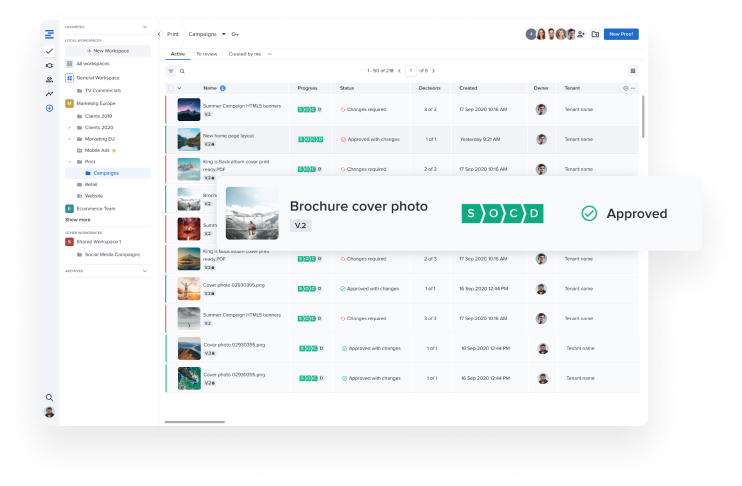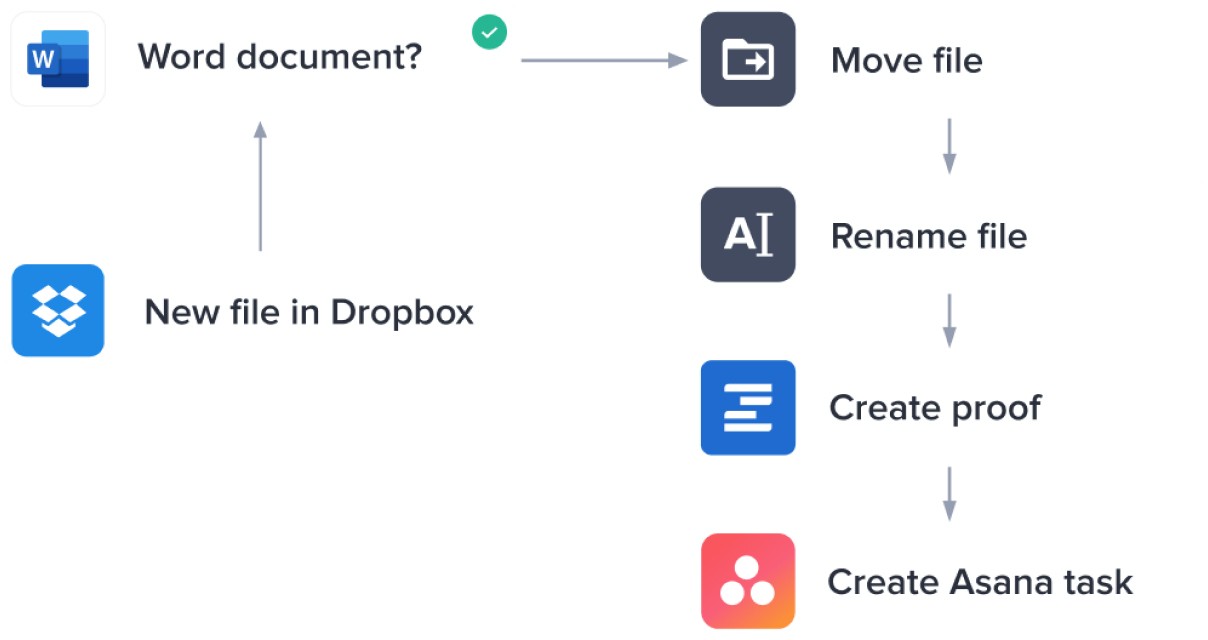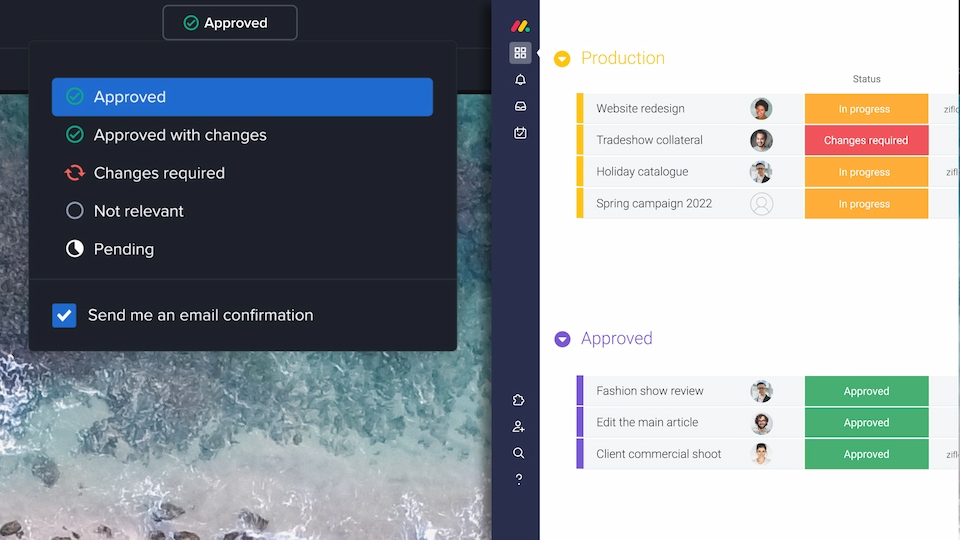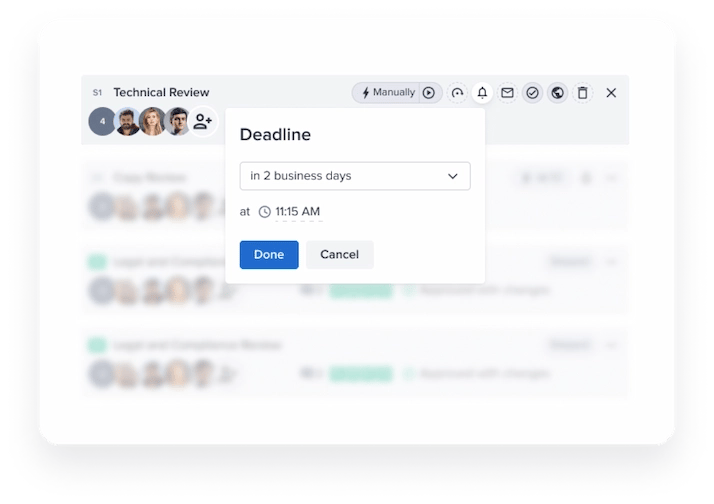
With a track record that spans media giants like WarnerMedia, Viacom, and Google, Aaron's expertise shines through in multi-million dollar projects across various mediums, from traditional television to the dynamic realm of YouTube.
Tips and strategies to keep your creative team happy and productive when dealing with less resources in recessions.
![]() Aaron Marquis 13 Feb 2023 READ TIME: 5 MIN
Aaron Marquis 13 Feb 2023 READ TIME: 5 MIN

It’s the word that raises goosebumps on every creative, and sends them running to update their CV: recession. Creative professionals know the pain of seeing budgets slashed and valued team members scattered to the wind of layoffs or changing strategies. For any creative team, economic downturns can create a sharp turn in your creative team’s track–derailing project flow, productivity, and morale.
Instability in the creative process can make it seem as if your creative team is taking one step forward and two steps back and struggling to make headway on brand needs.
However, running a lean creative team doesn’t have to mean everyone is just spinning their wheels. We’ve put together some tested qualities of adaptable creative teams below.
Chaos is the elephant in the room for any Marketing team. During a recession, it’s merely a question of how rambunctious the elephant wants to be. Your team should have the mindset that rapid change is part of the creative process, so that they can adapt quickly without the shock–especially when resources are tight.
Doing your best to stay ahead of trends (or at least neck and neck with them) is insurance against upending your creative team and wasting resources. Examples of trends include compliance changes or new marketing channels used by your core audience.
For instance, companies like Meta and Google are known for suddenly introducing new ad algorithms that render tried-and-true creative absolutely useless. If you know this is a possibility, you can prepare your team for strategies to counter such upheavals and adjust your creative production process accordingly around new priorities or marketing strategies that will give your brand (and creative team’s output) the most bang for its buck.
Unless your creative team member is named Homer and your project is called “The Odyssey,” your “source of truth” for your creative team shouldn’t be just one person.
Relying on one person’s knowledge of processes or project statuses is a detrimental bottleneck to operating a marketing team during economic uncertainty. This problem is only exacerbated by an unfortunate reduction of that person’s hours or worse, their redundancy.
Take the step now to create an intuitive, clearly defined storage system for previous assets, as well as a documentation hub for project histories. When jumping into a new project (especially with reduced headcount or resources), your team won’t have such a heavy lift to find critical information or brand assets. Further, you can repurpose designs and get a running start.

Documentation and previous project storage will ensure you not only weather any economic headwinds, but your marketing team will be that much stronger during normal economic conditions.
Take it from a leading creative process platform — there are features and optimizations you’re not using in your tech stack that could dramatically increase your team’s efficiency. Too often we get into a comfortable rhythm with our tech tools and neglect exploring the true power of which they’re capable. With a busy creative process–especially when you’re tasked with trying to do even more with less–spending the effort on exploring additional automations and enhancements can seem like a luxury of time you may not have.

However, in rough economic times where resources and creative personnel are stretched thin, it’s worth it to take a day exploring what your existing platforms can do before attempting to spend money on new ones and can set your team up for a more proactive and sustainable approach to collaboration. For instance, exploring native integrations with your existing project management platform and your creative tools can close time-wasting gaps in file sharing and the creative production process.

Lean on your existing account reps and experts who can guide you through finding additional efficiencies.
Relying on people for repetitive processes like project intake and forwarding assets around for review will bottleneck creative work even in the best of times. Using an automated workflow should be top of mind during boom times, but it becomes even more important during busy times.
Remember the lesson about not having one “source of truth?” The same applies to workflow processes. If you have a key creator or stakeholder leave your company or project, you risk upending your productivity. Automating workflows with staged steps and automated deadlines ensure that there are no project creation or review bottlenecks with changes in personnel or stakeholders.

You'll have a process you can plug new collaborators into immediately, whether that's a new agency or freelancer who may be creating work for your brand or a different internal stakeholder who needs to weight in on a new campaign.
Don’t be afraid to bust out the bubbly (or just give a nice public acknowledgement) to celebrate successes. Tough economic times are guaranteed to suck the air out of the creative team and tank their morale — particularly if teams are reduced and they’re doing more with less.
To increase morale and feelings of security, praise your team on a job well done. When a project or milestone is completed, hop onto slack or email and don’t be afraid to blast the company with a thoughtful recognition post about a team or individual. Yes, it’s nice for them to have a paycheck, but a sense of purpose and feeling of belonging at an organization does things that money cannot.
Keeping creative excellence and morale high during times economic uncertainty is no easy task. Teams that put tried-and-true, predictable processes in place for collaboration can adapt much more easily to changing creative conditions much easier--whether its personnel changes, limited resources, outsourced projects, new campaigns, or shifting company priorities.

With a track record that spans media giants like WarnerMedia, Viacom, and Google, Aaron's expertise shines through in multi-million dollar projects across various mediums, from traditional television to the dynamic realm of YouTube.
See how Ziflow's collaborative proofing platform supports all of your campaigns and channels.

Keep every campaign compliant and on-brand with this marketing compliance checklist. Learn how to protect your brand and streamline approvals using Zi...

Compare the 10 best online proofing software tools for creative teams. Discover features, pros, cons, and how to choose the right platform for your wo...

Ready to choose a creative automation platform? Discover what to look for so your team can create faster, collaborate better, and produce consistent r...
Subscribe to our newsletter for product updates and industry insights.
GET STARTED
TEAMS
INTEGRATIONS
INDUSTRIES